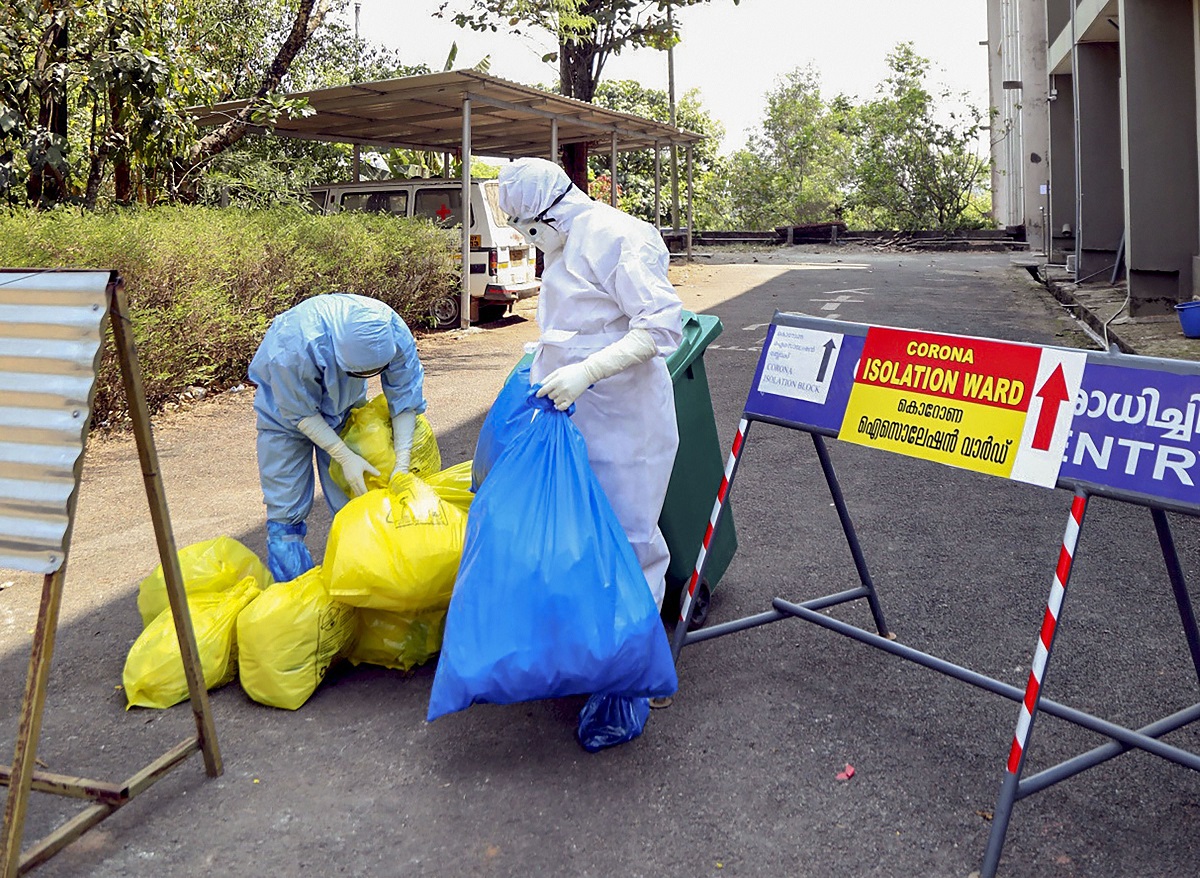
Why India should be grateful to Kerala’s war on coronavirus
A few days ago, a district administration official in Rajasthan’s Udaipur got a surprise call from Kerala. The person at the other end of the line told the Udaipur official that they need to track down three persons who had flown to India with a Kerala student who had just tested positive for the novel coronavirus that emanated from Wuhan.

A few days ago, a district administration official in Rajasthan’s Udaipur got a surprise call from Kerala. The person at the other end of the line told the Udaipur official that they need to track down three persons who had flown to India with a Kerala student who had just tested positive for the novel coronavirus that emanated from Wuhan.
A few frenetic calls later, after seeking the help of the local police, the Udaipur authorities were able to track down the three persons — one of them a Chinese tourist. In a few hours, they were quarantined in the state-run hospital. So far so good, or so you’d think.
Two days later, the Udaipur officials got another call, this time asking them if the quarantined persons were doing fine. To their horror, the officials discovered, two of these persons, including the Chinese tourist, had disappeared without a trace from the isolation ward. And — this takes the cake — the hospital staff were not even aware their patients had fled.
By the time these persons were tracked, they had hired a taxi and left for Rajasthan’s capital Jaipur. Somehow the police intercepted them and took them to the isolation ward of a hospital in Jaipur, where they were tested for the Wuhan virus.
Also read: With 3 confirmed cases of coronavirus, Kerala declares ‘state calamity’
This incident tells us the difference in the efficacy of the Kerala government in dealing with the outbreak and the complete lack of preparedness of other states. (In Madhya Pradesh two persons kept in isolation have also disappeared without a clue). It also highlights the silver line in the evolving corona cloud — that the first cases of the virus have been in Kerala and not in any other state.
From the information in the public space it is clear that Kerala is dealing with the threat with remarkable diligence, perseverance and with an approach that is thoroughly professional. As reports in various newspapers point out, Kerala has deployed more than 40,000 health officials, government employees, ground staff for three hugely challenging tasks – surveillance, contact tracing and counselling.
These officials act with alacrity if they suspect a person of being infected, then track down every person who may have been exposed to the virus, isolate those with symptoms and advice home quarantine for two weeks to those who are at risk.
According to NDTV, in the last three days, over 80 people – who came in direct contact with the three coronavirus patients – have been traced and placed under observation at hospitals and isolation wards. Over 2,230 people are under watch across the state; around 75 of them are in isolation wards, and the rest are quarantined at homes.
Corona virus is still evolving; scientists are trying to figure out how it spreads, what is its transmission rate and incubation period. Some studies have suggested it is transmitted even by asymptomatic patients for a period between 1-14 days. In the absence of clear information about the behaviour of the virus, it is quite possible that the virus would slip through and spread through the general population. But, at least, the Kerala government is trying its best to control the outbreak.
Also read: Coronavirus outbreak: Air India to suspend Delhi-Hong Kong flights from Feb 8
One of the biggest criticism’s against China in the aftermath of the outbreak is that it acted too late, primarily in a bid to ensure its economy is not hurt. Many other Southeast Asian countries are facing protests from their own citizens for putting tourism revenue ahead of the safety of the people by keeping their borders open and downplaying the threat of the outbreak.
But, Kerala has put all these concerns aside to declare the outbreak a calamity. This announcement and the surveillance measures implemented by the government will hit the state’s tourism revenues hard in the middle of the peak season. Yet, Kerala has gone ahead to accept the evolving threat and make people aware of it.
On hindsight, the Nepah virus outbreak that killed 17 persons in the state appears to have helped Kerala evolve an effective drill to deal with epidemics. Its success in dealing with Nipah and stopping it from spreading in spite of a large number of cases has given Kerala the requisite confidence and ability to deal with the new threat.
Also read: Coronavirus: Report or face action, Kerala warns China-returned
So far, the corona virus is confined to Kerala. Everybody is hoping that after the 14-day incubation period ends, there will not be fresh cases within the country. Now that India has cancelled visas issued to Chinese travellers and to those who have a history of transiting through the epicentre of the outbreak, chances of new patients coming to India from abroad are minimum. If India manages to avert the evolving epidemic—or even delay its arrival and progress—a large part of the credit would go to Kerala.
PS: The two persons who escaped from the isolation ward of a hospital in Udaipur were tested twice for the virus in Jaipur. Thankfully, they tested negative for the virus. Their story now sounds hilarious because they were not carrying the novel virus. But, in case they were infected, they would have left a 500-km trail of victims and a huge reservoir of virus they would have shed on the way. And by now, we would have been watching the number of patients grow at a rapid pace.


